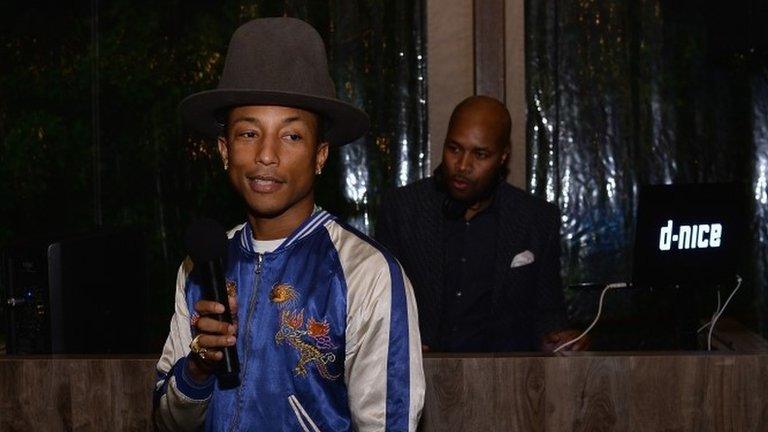Iran 'releases' dancers from Pharrell Happy tribute video
- Published
The BBC's Rana Rahimpour reported on the Iranians' release on bail
A group of Iranians who were arrested for filming a video tribute to Pharrell Williams' song Happy have been released on bail, reports from Tehran suggest.
One of the fans, fashion photographer Reihane Taravati, posted a photo on Instagram, external, saying: "Hi, I'm back."
She and her colleagues were arrested on Tuesday. Police said their "vulgar clip" had "hurt public chastity".
The video, external showed three men and three unveiled women dancing on the streets and rooftops of Tehran.
Williams, whose song was nominated for an Oscar earlier this year, had protested at the arrests.
"It is beyond sad that these kids were arrested for trying to spread happiness," the singer wrote on Facebook, external.
Many Twitter users had used the hashtag #freehappyiranians to put pressure on the Iranian authorities to release the dancers.
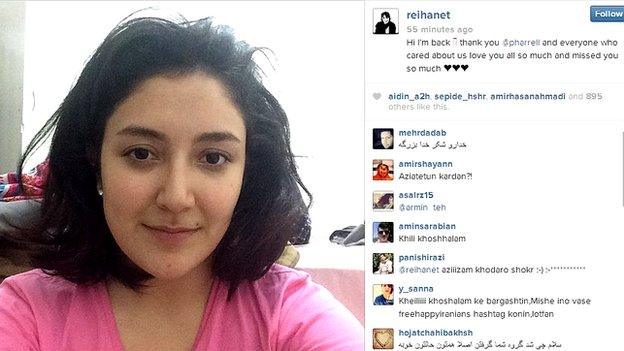
One of the dancers updated her Instagram profile to say she had been released
Announcing her release, Taravati wrote: "Hi I'm back. Thank you @pharrell and everyone who cared about us love you all so much and missed you so much."
The International Campaign for Human Rights in Iran (ICHRI) reported that the other dancers seen in the video had also been released.
"All people who made the Happy video released today, except the director of video, a source close to the families said," the organisation tweeted, external.
'Tricked'
The "Happy we are from Tehran" video, originally posted in March, has now been seen more than 40,000 times.
At the end of the clip, the credits read: "Happy was an excuse to be happy. We enjoyed every second of making it. Hope it puts a smile on your face."
According to some reports, a total of 13 people were arrested in connection with the video, but official sources have not confirmed the exact number of detainees.
Iran's state-run TV broadcast a programme on Tuesday, which apparently showed the men and women confessing on camera.
A subtitled edition of the TV clip, posted on YouTube, identified the detainees as "actors" who claimed they were tricked into making the Happy video for an audition.
"They told me they are making a feature film and they had a permit for it," said one man in the video, external. "They said those things and they fooled me."

The participants were shown on state television saying they had been duped into taking part
Another young woman added: "They had promised us not to publish the video."
Under Iran's interpretation of Islamic law, women must cover their hair and wear loose-fitting clothing meant to preserve their modesty.
Patrols of so-called "morality police" regularly enforce standards of Islamic dress on Iran's streets. However, the rules are widely flouted.
The internet is also heavily filtered in Iran, with the authorities blocking access to popular social networking sites.
But Arash Sobhani, lead singer of the Iranian underground rock group Kiosk, told the BBC's Persian service that attempts to suppress music and freedom of expression were not working.
"They banned our music, broke our guitars, attacked our parties and stopped our concerts," he said. "But did we stop? No!"
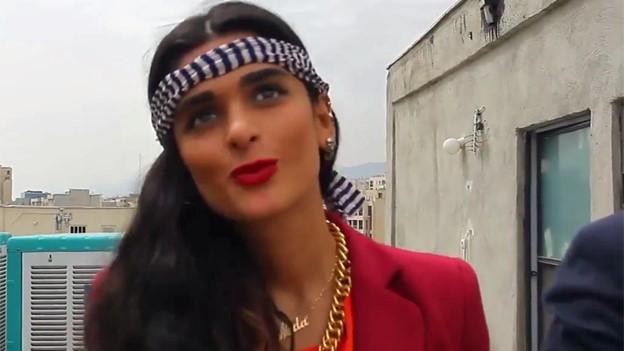
The video has been watched more than 40,000 times
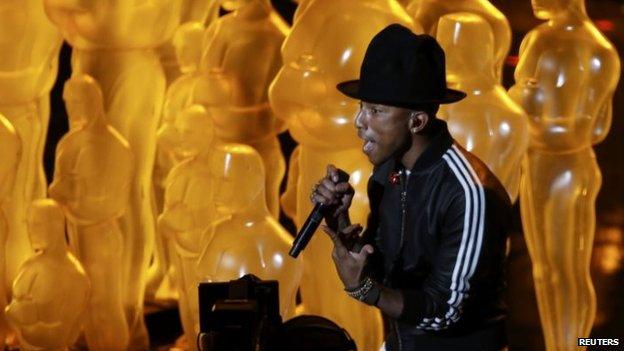
Williams performed the song at the Oscar ceremony in March
Williams' song has inspired hundreds of tributes since it was released last year on the soundtrack to hit animation Despicable Me 2.
In the UK, the track has reached number one on three separate occasions, while in the US it spent 10 weeks at the top of the Hot 100.
- Published21 May 2014
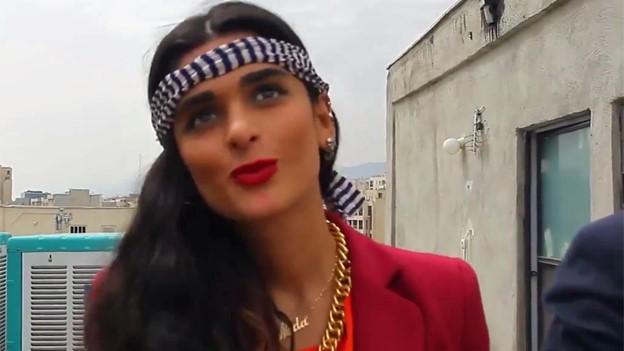
- Published2 May 2014

- Published4 April 2014

- Published2 March 2014
